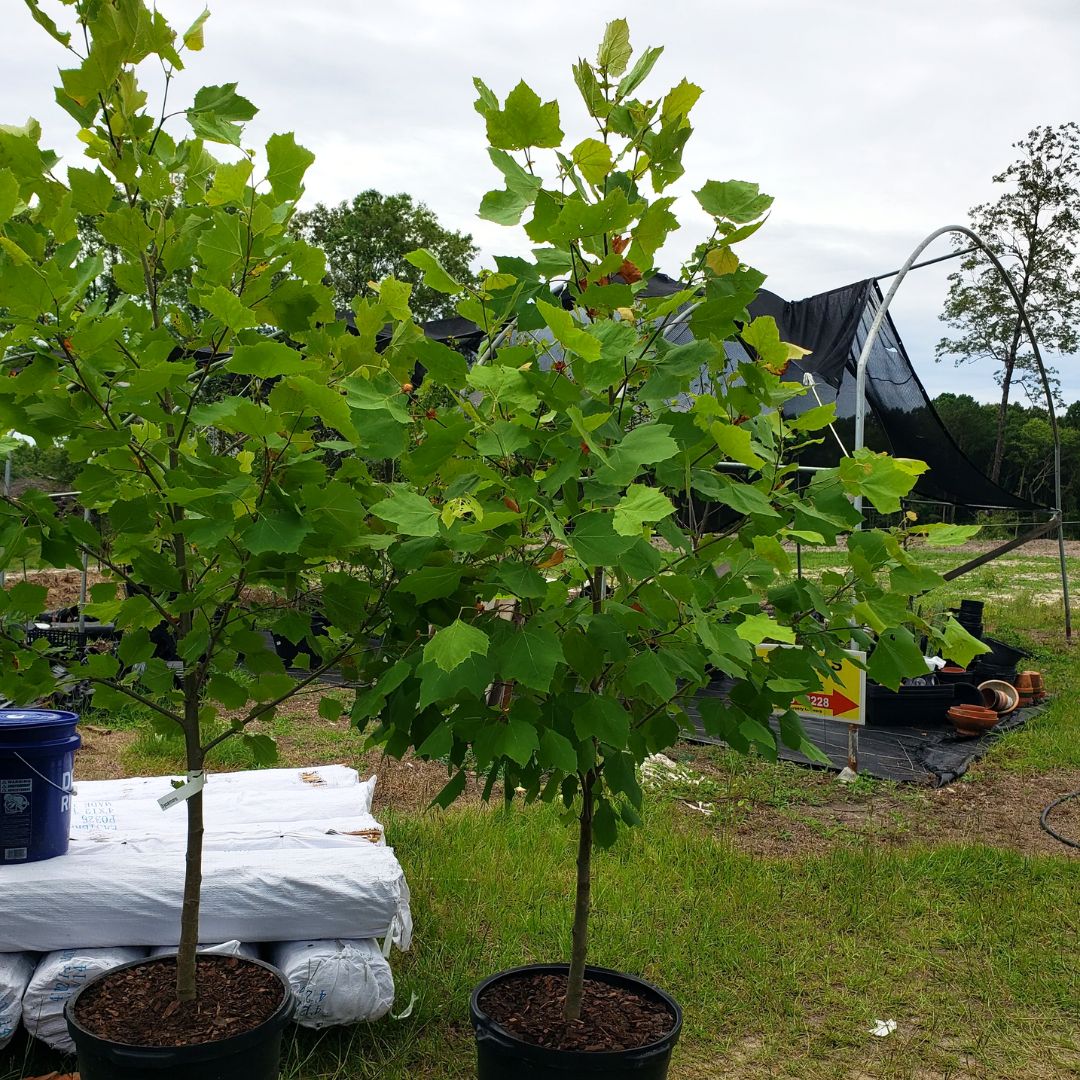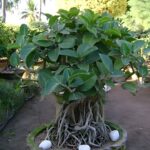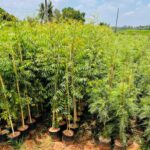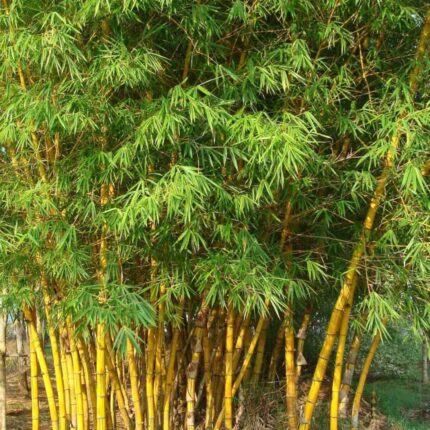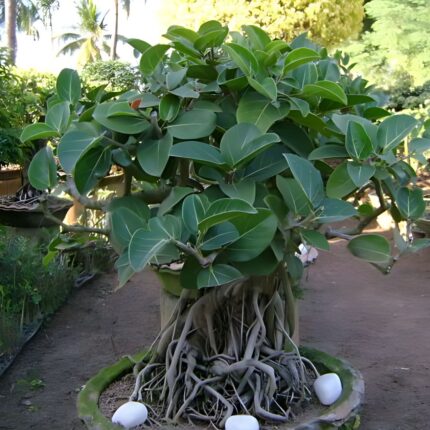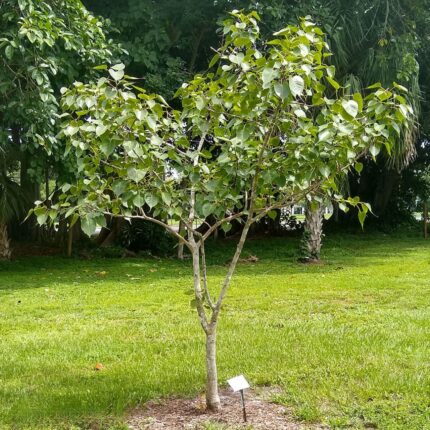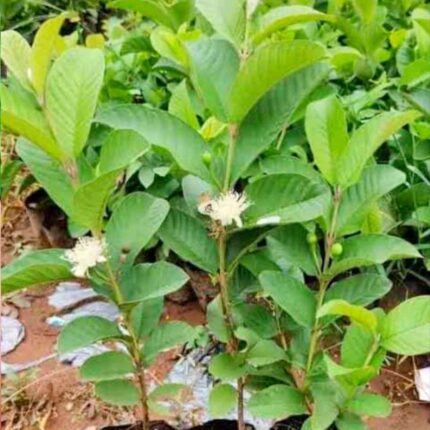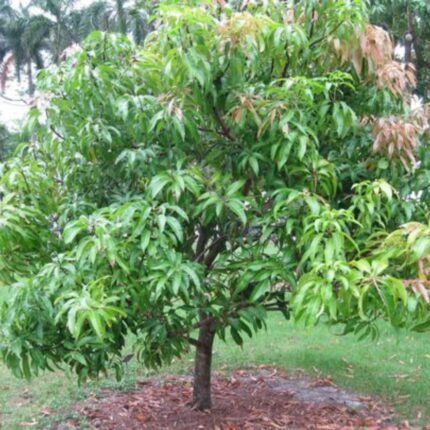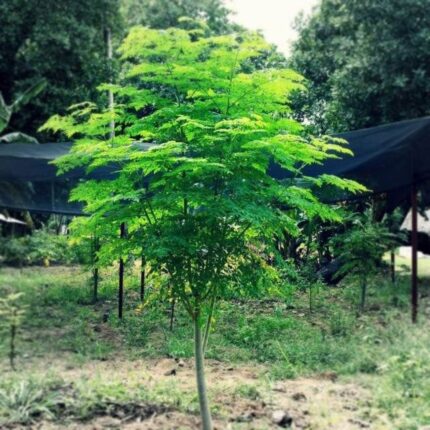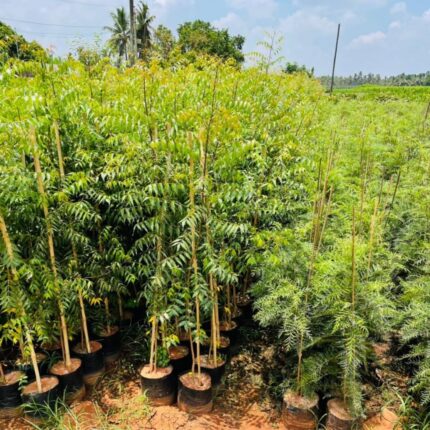Sycamore (गूलर)
₹2,998.00
The sycamore tree (Platanus occidentalis) is a large, deciduous tree native to North America. Known for its distinctive mottled bark and broad canopy, the sycamore is a majestic presence in many landscapes. The tree can reach heights of 70 to 100 feet or more, with a trunk diameter often exceeding 3 to 8 feet. Its leaves are broad, with three to five lobes, resembling those of a maple tree, and can grow up to 10 inches wide.
Description
Common Names: American Sycamore, Buttonwood, Plane Tree
Habitat and Growth Conditions
- Soil: Prefers rich, moist, well-drained soils but can tolerate a range of soil types, including clay and sandy soils.
- Sunlight: Thrives in full sun but can tolerate partial shade.
- Water: Requires moderate to high water levels; often found near rivers, streams, and in floodplains.
- Climate: Grows best in temperate climates and is hardy in USDA zones 4-9.
Benefits
- Shade: The sycamore’s large canopy provides extensive shade, making it an excellent choice for parks, streets, and large gardens.
- Wildlife Habitat: Offers habitat and food for various wildlife species, including birds, insects, and small mammals.
- Air Quality: Helps improve air quality by absorbing pollutants and releasing oxygen.
- Erosion Control: Its extensive root system helps stabilize soil and prevent erosion, particularly along waterways.
Uses
- Wood: The wood of the sycamore is used in furniture making, flooring, butcher blocks, and musical instruments due to its hardness and fine grain.
- Landscaping: Popular in urban landscaping for its size, shade, and aesthetic appeal.
- Historical Significance: Historically used by Native Americans for dugout canoes and by early settlers for its durable wood.
Maintenance
- Pruning: Requires regular pruning to maintain its shape and remove any dead or diseased branches.
- Watering: Young trees need regular watering to establish a deep root system, while mature trees require less frequent watering.
- Pests and Diseases: Can be susceptible to anthracnose, a fungal disease, which causes leaf drop and twig dieback. Regular monitoring and proper care can help manage this issue.
Interesting Facts
- Longevity: Sycamore trees can live for several hundred years, making them long-lasting additions to any landscape.
- Mottled Bark: The peeling bark of the sycamore, which reveals patches of white, gray, and green, is one of its most distinctive and attractive features.
- Historical Trees: Some sycamores have historical significance and have been landmarks for centuries. For example, the “Buttonwood Agreement,” which laid the foundation for the New York Stock Exchange, was signed under a sycamore tree.
The sycamore tree, with its towering height and expansive canopy, not only enhances the aesthetic beauty of its surroundings but also plays a crucial role in supporting local ecosystems and improving environmental health.
Related products
Bamboo (बांस)
₹2,998.00
Banyan (बरगद)
₹2,998.00
The Banyan tree, scientifically known as Ficus benghalensis, is a large, evergreen tree renowned for its extensive canopy and aerial roots. Native to the Indian subcontinent, it is considered a symbol of immortality and longevity in many cultures. The tree is known for its wide spread, often covering several acres with its expansive branches and roots that descend from its branches to the ground, forming additional trunks.
Ficus Religiosa (पीपल)
₹2,998.00
Guava (अमरूद)
₹2,998.00
Mango (आम)
₹2,998.00
Mango trees are evergreen and can grow up to 30-40 meters tall, with a canopy that can span several meters wide. The leaves are long and glossy, and the tree produces fragrant, small white or pink flowers. The fruit varies in size, shape, and color, but is typically oval or round, with a skin that can range from green to yellow to red when ripe. The flesh inside is juicy and sweet, surrounding a large, flat seed.
Moringa (सहजन)
₹2,998.00
Moringa, often referred to as the "miracle tree," is a highly versatile and resilient plant native to the Indian subcontinent. It is renowned for its exceptional nutritional value, medicinal properties, and environmental benefits. Moringa is widely cultivated in tropical and subtropical regions around the world.
Neem (नीम)
₹2,998.00
Neem is a fast-growing, evergreen tree native to the Indian subcontinent. It can reach a height of 15-20 meters (49-66 feet), and in rare cases, up to 35-40 meters (115-131 feet). It is known for its robust structure, bright green foliage, and fragrant white flowers. The tree produces small, olive-like fruit that turns yellow when ripe.

